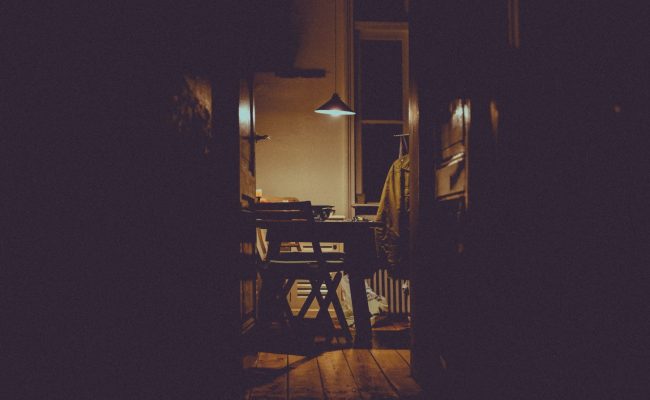When I was in Year 8, I occasionally went to the home of the girl I sat next to in French class. We didn’t usually hang out together, she always played soccer with the boys, but there was a friendly competition between us for first place in the yearly French exams. On those afternoons we would only speak French, sounding like characters from ‘Allo ‘Allo, and making up weird complicated sentences that no one could understand, least of all us.
Why I stopped going to her house was due to the photographs on her fridge. Usually I’d hurry past them, trying not to look, and rarely succeeding. They were held on with those magnets of cocktail glasses, palm trees and one that read Beer Without Alcohol is like Watching Porn on the Radio. My friend never mentioned them, these photos of her mother in her underwear. She seemed as blasé as if they had been photos of her poodle spread out on the bed.
I blushed every time my friend’s mother was in the kitchen. Especially when she pulled out Iced Vovos from the pantry next to them, or when she opened the fridge door for our Cokes. I never once saw her look at them. What else could my 13-year-old-self do but pretend I couldn’t see them, either?
The last time I visited, her father was at home. When we walked into the kitchen for something to eat her father stepped in between us, blocking my way. With his stubby finger, he tapped a new photo of his wife. She was leaning back on a white cane chair on their veranda, her index finger hung from the side of her mouth, and she was wearing a lacey bra and panties that would make my mother’s Kmart underwear squirm. In the photo her legs were spread wide so you could see the shadowy hollows either side of her inside leg.
‘What do you think of my wife?’ His eyebrows jumped up and down.
I don’t remember saying anything. I only remember the view I had of my friend, framed in the crook of his arm, taking an apple from the fruit bowl and cutting it with a sharp knife, in half, then quarters, then into smaller and smaller pieces. I couldn’t take my eyes off her. I couldn’t look anywhere else.
Finally, her father laughed and let me past. I scuttled over to my friend and stood so close to her I’m sure she could hear my rapid-fire pulse shuddering my breath. We stared at the apple which was now a pulpy mess, and neither of us said anything. The words we needed were in a language I hadn’t yet learned.
 Read the rest of 237.5: autumn fiction edited by Allan Drew
Read the rest of 237.5: autumn fiction edited by Allan Drew
If you enjoyed this special edition, subscribe and receive a year’s worth of print issues, the online magazine, special editions and discounted entry to our literary competitions



